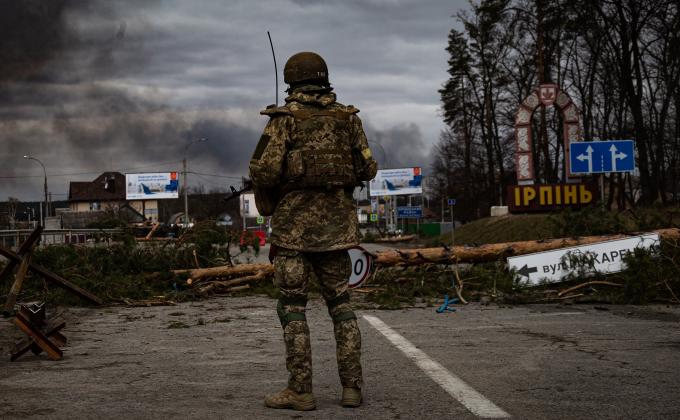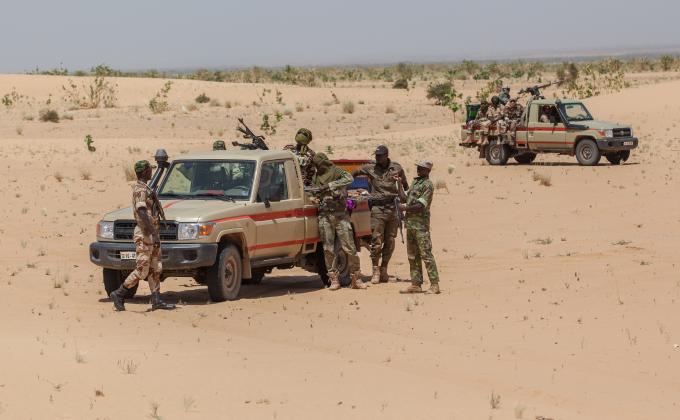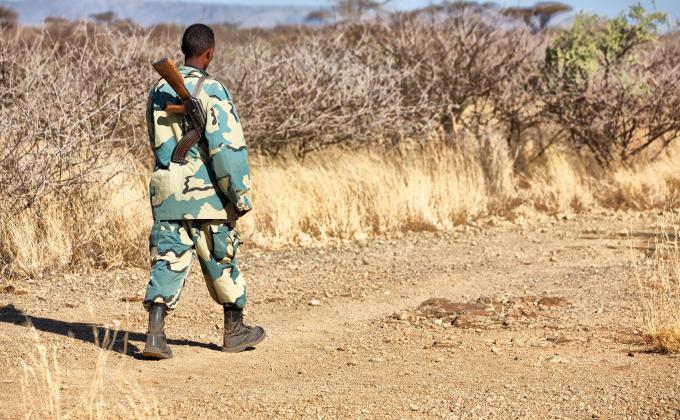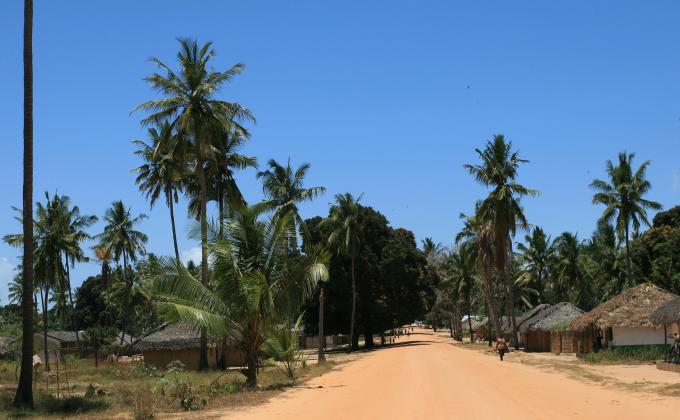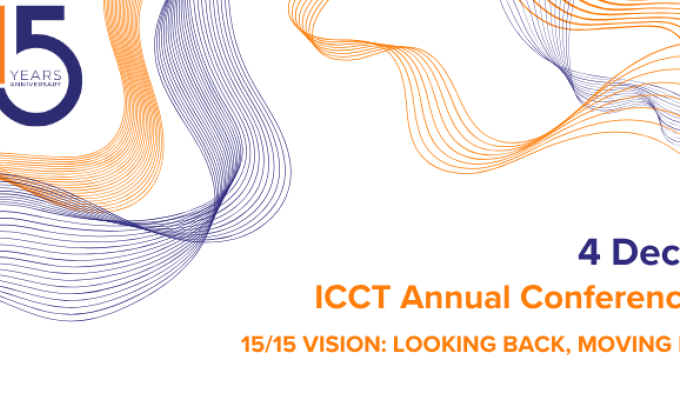Introduction
While the phenomenon is not new, the scale at which mercenaries and private military and security companies (PMSCs) actors are engaging in contemporary armed conflicts and counter-terrorism contexts is alarming. In recent years, the Wagner Group (henceforth also Wagner) has significantly increased its footprint not only in Ukraine, Syria, Libya, Sudan, Central African Republic (CAR), Mozambique, but also more recently in Mali.
Several countries have expressed concerns over Russia’s infamous Wagner Group, which has been repeatedly accused of human rights violations in countries where it operates, with the United States (US), the United Kingdom (UK), and the EU having notably issued sanctions against the group and its owner Yevgeny Prigozhin. In November 2022, the European Parliament took a step further by adopting a resolution urging the European Council to place Wagner on the terrorist list. Currently, the US is considering designating the Kremlin-backed Wagner Group.
This perspective will provide a short background to the Wagner Group, the impact for (countering) terrorism, and shed some light on accountability deficit and implications of a possible designation as a terrorist group.
The proliferation of proxy actors and Wagner in conflict-affected countries
States mainly use proxy actors, which can consist of local militias, rebel groups, designated terrorist groups or PMSCs, to exert influence and pursue their strategic objectives in a foreign conflict, while avoiding the financial and human costs of a direct involvement of their own military. The lack of public support for full scale military engagements and the trend of shrinking defence budget are key factors that contribute to an increasing use of proxies. However, since the start of the war in Ukraine, several European countries accelerated or increased their defence budget, notably Germany, Poland and the Netherlands. Among the rationale behind the resort to proxies and mercenaries is the covert nature of their actions, with such actors generally operating in the shadows, thereby helping to conceal their operations, obscuring their links with governments, and offering governments plausible deniability for their actions. The advantage of relying on local proxies could also be understanding the local dynamics.
In other cases, an ideological link may be the reason for a state to use a proxy, such as the use of Hezbollah by Iran. Due to technological developments, states can also resort to remote weapons and the use of information technology as proxy activities, notably by Russia and China. There is also growing use of PMSCs in armed conflicts and in the context of countering terrorism (CT) for the protection of persons and infrastructures, procurement of weapons, intelligence gathering, training and combat functions. PMSCs such as Blackwater, Titan Corp and CACI were widely used by the US in Iraq for a range of security-related functions, but were also implicated in human rights abuses.
Since Wagner first emerged in 2014 in the context of Russia’s annexation of Crimea, it has engaged in multiple conflict theatres around the globe, notably in Syria where Russian operatives deployed to support the Assad regime, through training and direct combat operations, and secure key energy infrastructures. In recent years, the group has exported its model and particularly sought to expand its footprint in Africa. Wagner has been operating in Libya to back General Haftar’s Libyan National Army (LNA), including its failed attempt to capture Tripoli in 2019. It has been present across Sub-Saharan Africa, including in Sudan to provide military assistance, training, and support to President Omar al-Bashir; in CAR, where its intervention progressively transformed from a support and training role to a direct combat role; as well as in Mozambique, where its deployment was short-lived, as the group was forced to withdraw from the country’s Cabo Delgado region within weeks after having suffered significant casualties. More recently, Wagner operatives have deployed in Mali to support counter-terrorism efforts, as well as in Ukraine. Wagner and affiliated front companies have reportedly conducted influence operations, including phony monitoring missions in various other African countries. Following the coup in Burkina Faso, and demonstrations of support for Russia that followed, there has been suspicions that the country could become a new terrain for Wagner operatives. Similarly, the recent signing of a defence agreement between Cameroon and Russia has been seen by some observers as “a possible precursor to a Wagner deployment.”
Wagner’s modus operandi
Several reports indicate that Russian mercenaries have been fulfilling various roles in areas where they operate, ranging from offering protective services to high-level officials, to providing training and equipment to host states’ security and defence forces and/or non-state armed groups, and have been performing direct combat roles. Besides providing “hired guns”, Wagner has also been engaged in activities, such as gathering and analysing intelligence, conducting disinformation operations, and meddling in elections. Examples include interference by Prigozhin during the presidential elections in 2016 and midterm elections in 2018 in the United States, and the presidential elections in Madagascar in 2018. The group has reportedly influenced domestic political affairs in at least a dozen African states, and shaped public opinions through social media campaigns, and even popular culture. Wagner’s engagement in resource-rich war-torn countries has moreover served to obtain lucrative natural resources and precious minerals, including, among others, oil and gas fields in Syria, gold mining concessions in Sudan, and gold and diamond mining concessions in CAR, allegedly exploited by Prigozhin-affiliated companies.
Rather than a single corporate entity, research has indicated that Wagner seems to have “become the brand name for an unofficial Russian network” of operatives, companies and businesses serving as proxy actors furthering Russia’s geopolitical interests. More broadly, experts have underlined that portraying Wagner as a traditional PMSC is misleading, the group rather being described as “a cut-out for the Russian Federation [that] uses the very thin PMC-veneer to provide the Russian state a modicum of plausible deniability.” The Wagner group is indeed believed to “provide the Kremlin a quasi-deniable means through which to pursue Russian objectives, which could include economic, geopolitical or military gains complementing or substituting for more traditional, overt forms of statecraft.” The deniability by Russia is becoming increasingly hard to maintain as Wagner has a training facility located next to a special unit of the Russian army and has apparently been issuing passports to Wagner mercenaries. After years of denial, Prigozhin openly acknowledged to be the owner and even opened a brand new headquarters in St Petersburg.
Wagner’s approach moreover differs from country to country, notably with regards to host government’s control over the group’s activities. While in some regions, the group has been mainly acting alongside regular armies, in others such as in CAR, Wagner has been operating more independently. When it comes to CT contexts, the position and role of mercenaries has also been multifaceted. They are sometimes recruited to support and conduct CT efforts, as notably seen with Wagner in Mozambique and Mali. In other contexts, mercenary groups have recruited operatives among former violent extremist offenders, such as former Islamic State’s affiliates. In addition, serious concerns have been raised regarding linkages between mercenaries and far-right extremism.
Human rights abuses and long-term impact on (countering) terrorism
A significant uptick in violence against civilians, in particular against members of the Fulani community, has been observed in countries where Wagner operates. ACLED data shows that Wagner perpetrates more violence against civilians than regular armies in both Mali and CAR, and even more so when the group is operating independently from security forces. Moreover, there is growing evidence that Wagner has committed indiscriminate attacks, torture, and other serious crimes that may amount to international crimes.
UN experts have notably raised concerns over alleged human rights abuses perpetrated by Russian operatives across CAR, including “mass summary executions, arbitrary detentions, torture during interrogations, forced disappearances, forced displacement of the civilian population, indiscriminate targeting of civilian facilities, violations of the right to health, and increasing attacks on humanitarian actors.” Underlying the lack of accountability and access to justice for victims, despite the establishment of a Special Commission of Inquiry by CAR government in October 2021, experts called CAR’s authorities “to end all relationships with private military and security personnel, particularly the Wagner Group.”
Zooming in on Mali, Wagner has been assisting the ruling military junta to counter terrorism after the withdrawal of French troops. More civilian casualties have been recorded in Mali from Wagner’s arrival in December 2021 to late March 2022 than during the entire previous year. The UN peacekeeping mission in Mali (MINUSMA) has moreover reported a tenfold increase in the number of human rights violations committed by security and defence forces throughout the country between the last three months of 2021 and the first quarter of 2022. These examples are only a few in a longer list of accusations that the group faces, including as regards its operations in Syria, Libya, and Ukraine.
As research has shown, violence against civilians especially when committed by security forces, including state-like actors, represents one the most significant drivers – if not the very tipping point – leading individuals to engage in violent extremism. JNIM has been recruiting from the marginalised Fulani community, and Wagner’s deployment has created ‘more fertile ground for such outreach efforts.’
It is highly debatable whether Wagner has yielded success in combatting terrorism. Recent research indicates that the number of jihadi terrorist attacks has surged in Mali since Wagner’s intervention. While many of the attacks are directed against Malian forces, 132 civilians suspected of collaborating with the Malian forces were killed by Katiba Macina (KM), an affiliate of al-Qaeda-aligned Jamaat Nusrat al-Islam wal Muslimin (JNIM), in June 2022. Also, the Islamic State in the Greater Sahara (ISGS), a local branch of the Islamic State, has been able to expand its stronghold in the country and has carried out more terrorist attacks. As rightly underlined by Sorcha MacLeod, chair of the UN Working Group on the use of mercenaries, such actors “have no incentive to end the conflict, because they are financially motivated.” Even in the eventuality of a return to peace in regions where they operate, it is moreover crucial to note that “mercenaries are not like army reservists, to be used only when you need them. Military contractors do not reintegrate into the civilian workforce after a war but instead look for new employers because they are profit-maximizing entities.”
Accountability deficit
There is a clear lack of accountability for human rights violations committed by mercenaries, PMSCs and their employees, by the states that are sponsoring, hosting, or hiring them. In addition to being highly problematic in themselves, such abuses might however have devastating consequences on conflict dynamics over the longer term.
While mercenaries in international armed conflict are not criminalised under international humanitarian law, two conventions have been adopted to criminalise and prevent the financing, recruitment, and use of mercenaries during armed conflict, including non-international armed conflicts. The International Convention Against the Recruitment, Use, Financing and Training of Mercenaries, only ratified by 37 countries and the African Union (AU) Convention for the Elimination of Mercenarism in Africa ratified by 32 countries. Most of the African countries where Wagner is active, with the exception of Mozambique and CAR, are party to the AU Convention. A mercenary is defined in the AU Convention as a hired soldier who is primarily motivated by financial gain, and is not a national or resident of a party to the conflict.
While the definition is slightly less narrow than the one under Article 47 of the Additional Protocol of the Geneva Conventions (API), it remains difficult to meet all criteria. For example, a Russian national acting for Wagner in Ukraine would not be considered a mercenary, whereas he would be when fighting in Mali, provided all the other criteria are met. Whether mercenary is criminalised in domestic legislation may not be the biggest bottleneck, but rather the political will of government that rely on Wagner for security-related activities to prosecute them for the act of mercenary where applicable or for any of human rights violations they have committed. Attributing responsibility for acts of committed by Wagner to Russia under international law is also complex and difficult to achieve.
Even though many of Wagner’s mercenaries are likely to flee to Russia and will not be extradited, there are other options to consider. Foreign national courts could assert universal jurisdiction and prosecute Wagner’s mercenaries if the serious human rights violations amount to international crimes. In addition, where the International Criminal Court has jurisdiction, it could also hold the mercenaries and their superiors accountable.
Mercenaries should be distinguished from PMSCs, which are private businesses that provide a range of military and/or security services. Employees or contractors working for PMSCs rarely meet the criteria of mercenaries, but are nonetheless referred to as mercenaries in the media, but technically are proxy actors which may operate like mercenaries. There are several specific differences. Firstly, the PMSCs and mercenaries are regulated by different legal frameworks. PMSCs are regulated at international level by the non-binding Montreux document that has been adopted by 58 States and outlines the relevant international legal obligations that are applicable to PMSCs during armed conflict. In addition, PMSCs have adopted their own International Code of Conduct to enhance compliance with international human rights law and the rule of law. At a national level, a robust legal and policy framework should regulate the license to use force, the vetting and training of staff, and provide for meaningful oversight of PMSCs. Yet, in reality PMSCs and their employees are shielded from responsibility and often operate in a legal vacuum, contributing to impunity. In a rare case, four employees of Blackwater, a US PMSC, were convicted for the Nisour massacre in Iraq resulting in 37 Iraqi civilian casualties but were pardoned by former President Trump in December 2020.
Sanctions and Actions against the Wagner group
Wagner’s track record of human rights abuses, and its broader impact on conflicts and insecurity, is gaining growing global attention, with sanctions and actions being progressively taken against the group. International organisations, such as the MINUSMA and Human Rights Watch can play an important role in documenting the human rights abuses during conflict, including crimes that are being committed by the Wagner group. MINUSMA, which has 32 ongoing human rights investigations across Mali, is however still being denied access to the central Malian town of Moura. In Moura, the national armed forces and their Wagner allies are accused of having perpetrated mass executions and several other human rights violations in late March 2022, that reportedly resulted in at least 300 deaths, mostly civilians. The independent expert for Mali noted a shrinking space for civil society which will impedes accountability. As governments such as the UK and Germany are withdrawing their troops from MINUSMA, the ability to document human rights violations will further be reduced.
Now for the first time, NGOs are also trying to hold Wagner accountable. On behalf of a Syrian victim, a criminal complaint has been filed against Wagner with the Investigative Committee of the Russian Federation. In March 2022, a Russian court concluded that the Investigative Committee was not obligated to open investigations. In November 2022, lawyers in UK took legal action against Wagner in an attempt to seek accountability and reparations for Ukrainian victims.
Wagner’s designation as a terrorist organisation would not be the first attempt to sanction the group, and Prigozhin. The latter has notably been faced with “at least seven sets of sanctions” imposed by the US since 2016, and has been sanctioned by the EU in 2020 for the group’s activities in Libya. Wagner as a group has also been subjected to sanctions, including restrictive measures adopted by the Council in December 2021 under four different sanction regimes, notably the EU Global Human Rights Sanctions Regime, and sanctions regimes relating to the situation in Libya and Syria, as well as relating to actions undermining Ukraine’s territorial integrity. More recently, an inquiry into states’ use of proxy private military companies, in particular the Wagner Group, was launched by the UK Parliament to explore “what more can be done to identify, track and sanction members of private military companies.”
Against this backdrop, the European Parliament adopted a resolution urging the European Council to place Wagner Group on the EU terrorist list. The criteria to be listed by the EU as a terrorist group are different then for the other sanctions list. To be listed as a terrorist group, the entity should be involved in terrorist acts such as intimidating a population, or forcing government or an international organisation to act or refrain from acting, or seriously destabilising the fundamental political structure of a country or an international organisation. The latter could include a range of acts such as hostage taking, causing bodily harm or death, directing or participating in a terrorist group, etc. Considering the aforementioned nefarious activities of Wagner in many countries in Africa, it is very likely that it would meet this threshold.
If/when Wagner is listed by the EU on the terrorism list, it would mean that a travel ban would be imposed, assets would be frozen, and EU citizens would be banned from funding Wagner. Furthermore, the designation would potentially open the door for prosecuting those joining and recruiting for Wagner. In how far the listing, and subsequent sanctions would in practice limit Wagner’s access to funding however remains unclear. In addition to funding from the Kremlin, Wagner indeed obtains lucrative revenues in several African countries, notably through the exploitation of natural resources. Designating also carries a strong symbolic function and sends a strong message not only to Russia, but also to countries in Africa who may think twice before colluding with the group. While the international community may consider refraining from supporting countries hosting Wagner’s mercenaries in combatting terrorism, the security situation on the ground will likely only further deteriorate without any support.
Conclusions
The use of PMSCs and mercenaries prolongs conflicts, amplifies levels of violence, increases substantially the risk of violations of human rights and international humanitarian law, undermines peace efforts, and destabilises regions. Yet, resorting to proxy actors to exert military control or to support foreign policy objectives, including economic gains, is likely going to continue in the coming years. The great power competition, the ability to exert influence without directly involving one’s own military, saving costs, but above all the lack of accountability, will further drive the use of proxies. The obscurity of how proxy actors operate, the deniability of involvement of states, and the lack of being able to label the Wagner Group leads to an accountability gap. PMSCs, in particular Wagner, can pursue their own agenda, and even operate rather independently from state actors as observed in CAR, and can lead to escalating violence and prolonging the conflict.
Regardless of the legal qualifications, all parties to the conflict, including armed forces, mercenaries, employers of PMSCs, and foreign fighters, need to respect international humanitarian law. During non-international armed conflict, this means that all parties need as minimum standards of common article of the Geneva Conventions, which includes the prohibition of taking hostages, torture, and murder with the aim to protect civilians.
It is time to step up the game against the Wagner Group, with a tighter legal architecture, targeted sanctions, possibly recognising it as a terrorist group and holding Prigozhin, its mercenaries, and beneficiaries accountable whenever and wherever possible. Further research and insights into the group’s overall functioning, including its recruitment, training, and financing strategies, are needed to allow for the development of adequate responses to prevent Wagner to carry out their nefarious activities and ways to close the impunity gap.
Photocredit: PRESSLAB/Shutterstock


